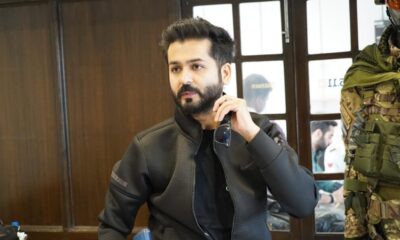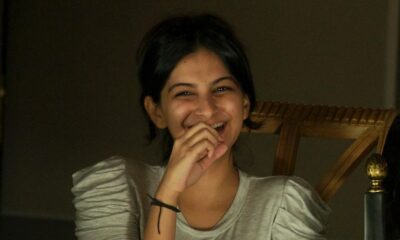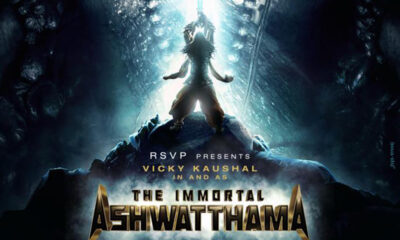Exclusives
Shashwat Sachdev gets candid about his journey in Bollywood, here’s what he said
In conversation with CineBlitz, Shashwat Sachdev, the latest music sensation behind Uri: The Surgical Strike, Veere De Wedding and Phillauri spoke his heart out
Published
5 years agoon
By
Henna Brar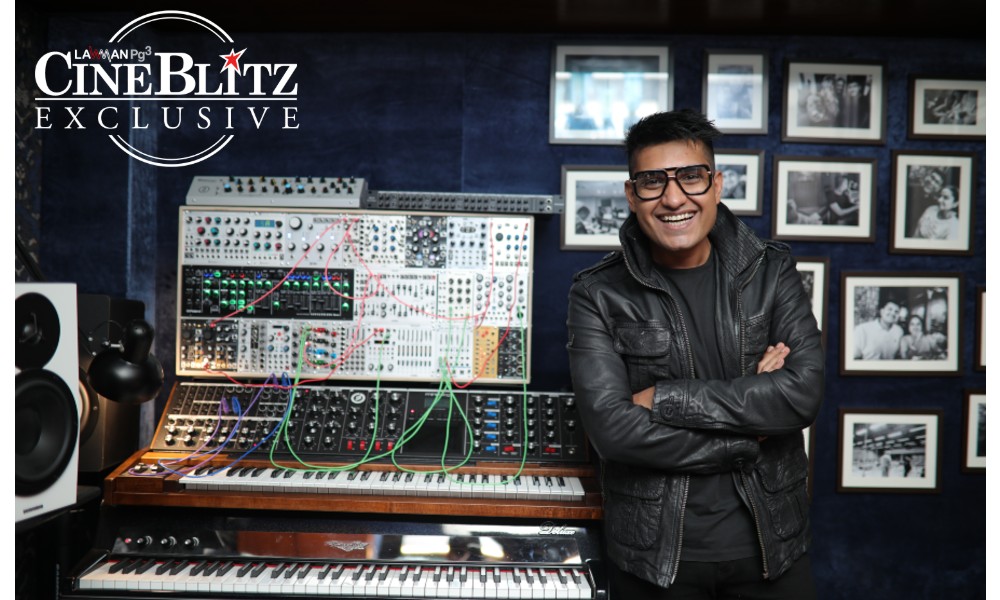
What has been your experience working in Hollywood?
I was working in Hollywood for 4-5 years. I worked with Mark Sherman who just won an Oscar this year. He is a classical composer and he had sent me to work on something for Broadway show Smash, I was producing for it. I met Mark through Tony Maserati who is a record producer, he is multiple Grammy award winner. It was a great experience to work with that level of technicians so early on!
Tell me about your experience working on Veere de wedding with Rhea Kapoor and Ekta Kapoor?
Veere Di Wedding was the first film I was supposed to do, I had just come back from LA and was doing my own electronic music project at that point. Rhea comes from an informed music space and knows the business of it, she is an excellent music producer. I am very fortunate, she was the first person I worked with. I was working on Phillauri as Veere kept getting pushed every quarter. First Veere had 5 songs, then Rhea wanted to explore and do more music meanwhile, Vishal did a couple of tracks and it became an album.
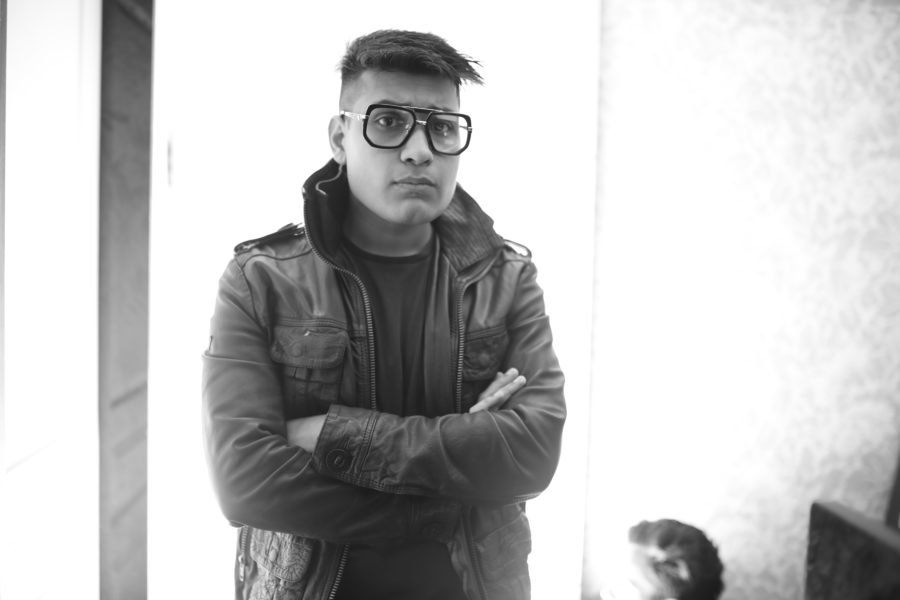
But Phillauri became the film that marked your debut in Bollywood?
Anushka and Anshai were looking for someone to do the music for Phillauri. Anshai was courageous to go with me. It is like a catch 22 situation for an artist, in the beginning, someone wants to work with you if you have a body of work, but how do you start? So you need to work with courageous people. Both Anshai and Rhea come from this fearless space. Phillauri came out first and musically it got a lot of acclaims.
How did Uri happen?
I was finishing Veere’s album when I met Aditya and he told me that he was doing a war film. I told him I’ll do the songs except for the background score because it goes unappreciated and they don’t even pay. I come from a background where I use to score for television in LA and I didn’t want to come back to doing that here. I agreed to supervise if he got someone on board to work with me and the rest is history.
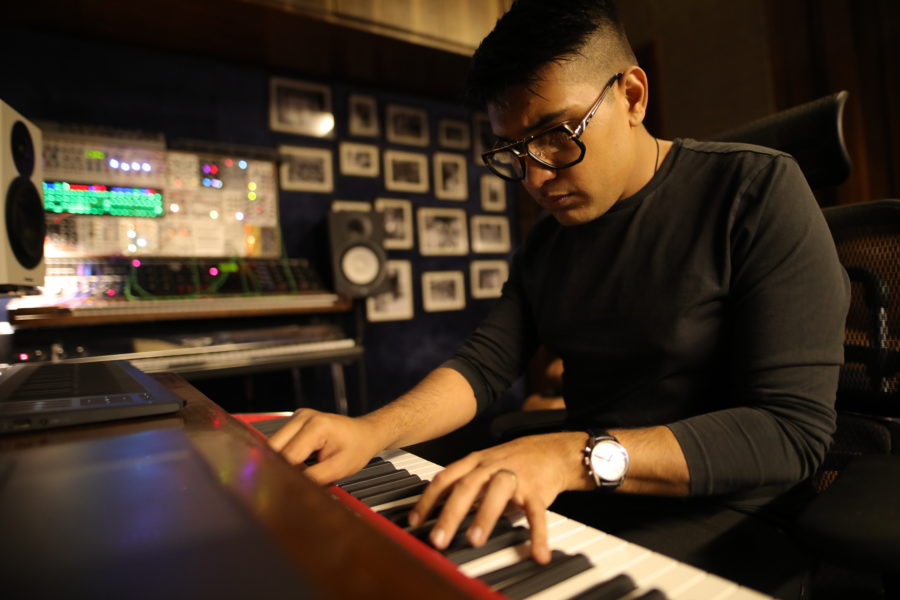
What was your creative process for URI?
If it’s a script, I will write and scribble on every page, with Aditya I did that and he said I have to listen to what you have in mind, how can you explain music to me with words. I said I’ll take a few days and get back. So these guys went on a shoot and I went to Berlin, I finished 2 hours of the score before they came back. I kept sharing whatever I was preparing, and I would be like, do you remember that scene on page 6? The editor is the most important in putting the score together, that’s how I met Shiv and we also became such thick friends. The way he put my music in the movie it was so intelligent, he played an integral part for this process. The Background score has its own language in the movie, it tells a story.
How do you feel about your music from Uri getting such appreciation?
Uri worked and a lot of my other music also came to the forefront. I think people want to check out other stuff I have done when a film does well. When people heard Veere’s music they went back to Phillauri. Now they are digging and writing about other work, with Uri people went back to Veere. So it’s been great overall!
Remixes, your take on it?
If my director expects me to do it, I will have a conversation with him because I am a pro doing original stuff and not someone else’s. If my director asks me to make a remix then maybe it’s a wrong decision to start with for me, I can’t blame the person who is making the remix because that is his choice, and he has chosen to work with a set of people who has the same bandwidth, so it works for him I guess.
You may like


Aditya Dhar opens up about the difference between Article 370 and URI: The Surgical Strike


Rhea Kapoor shares unseen images from being an Assistant Director in Wake Up Sid to a producer in Thank You For Coming


Rhea Kapoor calls Kriti Sanon the new shining star


Rhea Kapoor redefines opulent fashion in the iconic ‘The Core Collection’ by Jimmy Choo


Malaika Arora goes missing from Kapoor wedding, spotted the next morning with Arbaaz Khan


Vicky Kaushal, Aditya Dhar and Ronnie Screwvala unveil first look of Ashwatthama

